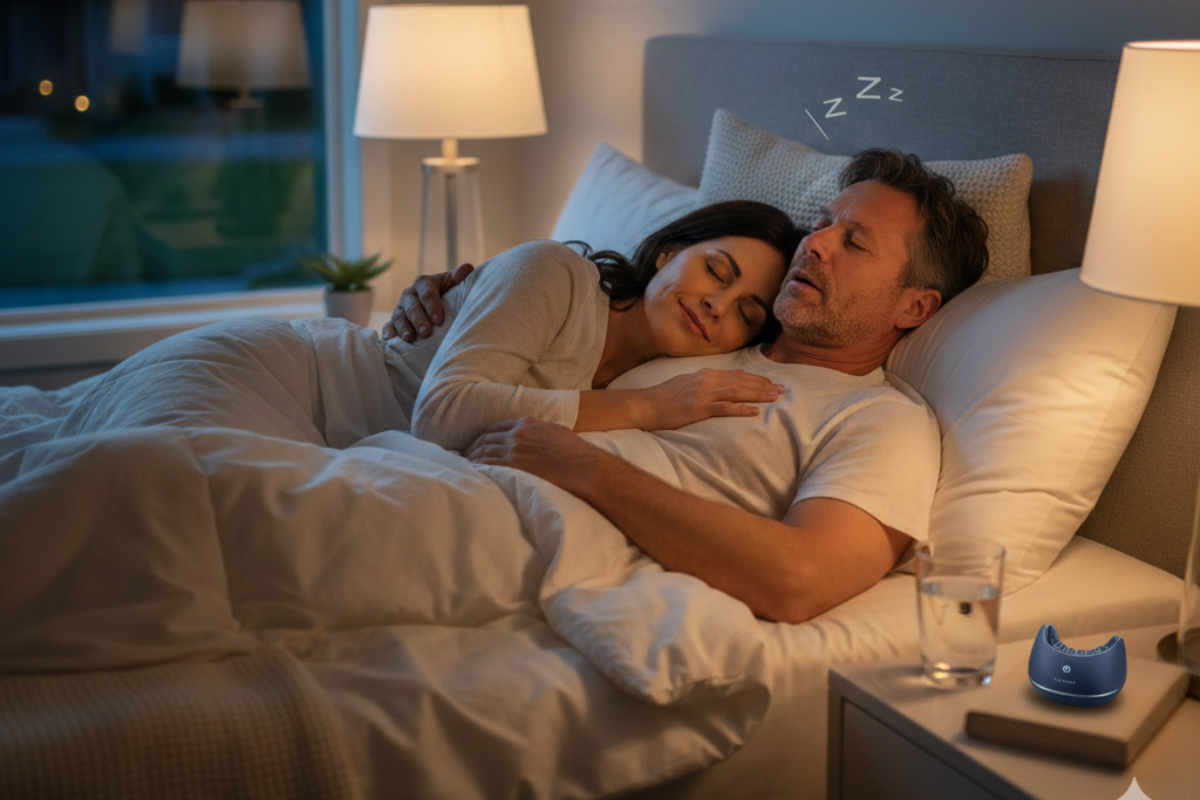Free Shipping - On Orders Over $99 (USA, Canada, UK, & AU)

How to Sleep Better During Quarantine
May 04, 2020 2 min read
Prior to COVID-19, the CDC reported that 60% of Americans lose sleep due to financial and economic stress. Now that we’re well into a global pandemic, studies show that number has jumped to 77%. Sleep deprivation during this time is quite common. It makes sense - we’re waking up to bad news almost every day, we’re stressed, job security is low, and uncertainty is high. So, how can we get those hours of sleep in? Let’s talk about it.
Build a routine now
If you were already losing sleep pre-pandemic, now’s the time to create a proper routine.
Start by incorporating relaxing activities an hour before bed, and avoiding high energy and eye straining ones. That means ditch the tech, and focus on winding down with yoga, warm showers, or reading a book. The more you stick to the same routine, the easier your body adjusts to this new circadian rhythm.
Socialize
No, we’re not saying go out and see your friends, but it’s important to stay connected. Since most of us have taken shelter at home, we need to be a bit creative with how we recharge from work and chores. Virtual chats or distanced walks are quite an easy way to socialize. Generally, this boosts your mood, ups your light exposure, and helps you recharge when your internal battery is running low.
Limit your news and social media use
We’re wired more than ever. Every news story, every single thing our friends are doing, every conspiracy theory is most likely causing even more stress for those who can’t sleep. If you’re easily triggered by everything COVID-19, try limiting your news and social feed time and especially avoid the news before bed.
Use meditation, journaling, and gratitude
To counter anxiety, many people turn to relaxing and self-reflective methods. Meditating or breathing exercises before bed, or ideally throughout the day help kick start your relaxation process. So, if your anxiety levels are high, take a couple minutes to practice meditation. Another helpful method is journaling and accepting self-gratitude. Before bed, write down the positives of the day. You’re more likely to go to sleep peacefully this way.
Losing sleep isn’t uncommon. But going to sleep scared, stressed, and anxious can be avoided. These are starting points that hopefully lead to a better night’s rest.
References
- https://www.fastcompany.com/90486181/8-smart-tips-to-help-you-sleep-better-during-the-covid-19-crisis
- https://greatergood.berkeley.edu/article/item/how_to_keep_coronavirus_worries_from_disrupting_your_sleep
- https://www.nytimes.com/2020/03/25/style/self-care/sleep-tips-benefits-coronavirus.html
- https://www.health.harvard.edu/blog/mindfulness-meditation-helps-fight-insomnia-improves-sleep-201502187726
Also in Blog

Healthy Sleep Goals For 2026
December 22, 2025 6 min read

💨 Are Your Nighttime Breathing Issues Robbing You of Your Health and Your Energy?
December 12, 2025 3 min read
Breathing issues during sleep, collectively known as sleep-disordered breathing, are a major public health concern.

Is Your Snoring a Sign of Something More Serious? Unpacking the Science of Sleep
December 05, 2025 3 min read
When you snore, what's actually happening?
Join our Insiders Club
Every week you will receive specials, discounts, and giveaways.
Categories
- Better Sleep
- depression
- Fitness
- funny animal
- Global Citizenship
- health
- Mental Health
- mouthpiece
- nutrition
- pillow
- Productivity
- relationships
- sleep
- sleep apnea
- sleep deprivation
- Sleep Tech
- snoring
- snoring humor
- snoring jokes
- snoring sounds
- stop snoring
- StopSnoringStartLiving
- technology
- Tongue displacement
- travel
- video
- Young Adult

